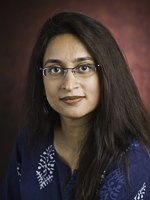Related Research Articles
White supremacy is the belief that white people are superior to those of other races and thus should dominate them. The belief favors the maintenance and defense of any power and privilege held by white people. White supremacy has roots in the now-discredited doctrine of scientific racism and was a key justification for European colonialism.
Islamophobia is the fear of, hatred of, or prejudice against the religion of Islam or Muslims in general, especially when seen as a geopolitical force or a source of terrorism.

"Eurabia" is a far-right, anti-Muslim conspiracy theory that posits that globalist entities, led by French and Arab powers, aim to Islamize and Arabize Europe, thereby weakening its existing culture and undermining its previous alliances with the United States and Israel.
Gisèle Littman, better known by her pen name Bat Ye'or, is an Egyptian-born British-French author, who promotes the Eurabia conspiracy theory in her writings about modern Europe, in which she argues that Islam, anti-Americanism and antisemitism hold sway over European culture and politics.
Campaign Against Racism and Fascism (CARF) was an anti-racist group and publication based in London which originated in the mid-1970s as an anti-racist/anti-fascist paper published by the federation of Anti-Fascist Committees in Greater London. From 1979 it appeared as a section within the anti-Fascist Searchlight magazine, produced by the CARF Collective based at the Institute of Race Relations, and later still it split with Searchlight to publish as an independent magazine for some years before closing down in 2003. The CARF group then operated as a support group for the IRR's news output.

Deepa Kumar is an Indian American scholar and activist. She is a professor of Journalism and Media Studies at Rutgers University. Kumar has been referred to by the Media Education Foundation as “one of the nation’s foremost scholars on Islamophobia" and by the New York Times as "a world-renowned scholar of Islamophobia and race." She is a leader in the Rutgers faculty union, the AAUP-AFT. When she was president, the union fought for gender and race equity, and in 2019 won a contract that AFT president, Randi Weingarten, said “will inspire higher education professionals across [the] country to fight and win their own battles to improve their lives – and the lives of others – in the streets and at the bargaining table.”

The Italian racial laws, otherwise referred to as the Racial Laws, were a series of laws promulgated by the government of Benito Mussolini in Fascist Italy from 1938 to 1944 in order to enforce racial discrimination and segregation in the Kingdom of Italy. The main victims of the Racial Laws were Italian Jews and the African inhabitants of the Italian Empire.
Counter-jihad, also known as the counter-jihad movement, is a self-titled political current loosely consisting of authors, bloggers, think tanks, street movements and so on linked by beliefs that view Islam not as a religion but as an ideology that constitutes an existential threat to Western civilization. Consequently, counter-jihadists consider all Muslims as a potential threat, especially when they are already living within Western boundaries. Western Muslims accordingly are portrayed as a "fifth column", collectively seeking to destabilize Western nations' identity and values for the benefit of an international Islamic movement intent on the establishment of a caliphate in Western countries. The counter-jihad movement has been variously described as anti-Islamic, Islamophobic, inciting hatred against Muslims, and far-right. Influential figures in the movement include the bloggers Pamela Geller and Robert Spencer in the US, and Geert Wilders and Tommy Robinson in Europe.
The Anti-Nazi League (ANL) was an organisation set up in 1977 on the initiative of the Socialist Workers Party with sponsorship from some trade unions and the endorsement of a list of prominent people to oppose the rise of far-right groups in the United Kingdom. It was wound down in 1981. It was relaunched in 1992, but merged into Unite Against Fascism in 2003.
Islamophobia in the media refers to negative coverage of Islam-related topics, Muslims, or Arabs by media outlets in a way that is hostile, untrue, and/or misleading. Islamophobia is defined as "Intense dislike or fear of Islam, especially as a political force; hostility or prejudice towards Muslims", and the study of how and to what extent the media furthers Islamophobia has been the subject of much academic and political discussion.

Cultural racism, sometimes called neo-racism, new racism, postmodern racism, or differentialist racism, is a concept that has been applied to prejudices and discrimination based on cultural differences between ethnic or racial groups. This includes the idea that some cultures are superior to others or in more extreme cases that various cultures are fundamentally incompatible and should not co-exist in the same society or state. In this it differs from biological or scientific racism, which refers to prejudices and discrimination rooted in perceived biological differences between ethnic or racial groups.

Farid Hafez is an Austrian political scientist and holds the endowed chair of Class of 1955 Distinguished Visiting Professor of International Studies at Williams College and senior researcher at Georgetown University's The Bridge Initiative. Before his role at Williams College, he was at the department of political science and sociology at the University of Salzburg.
Penny Green is an Australian criminologist. She has been a Professor of Law and Globalisation and Head of the Department of Law at Queen Mary University of London since September 2014.
The New English Review is an online monthly magazine of cultural criticism, published from Nashville, Tennessee, since February 2006. Scholars note the magazine to have platformed a range of far-right Islamophobic discourse including conspiracy theories. An eponymous press is run by the same publisher.

Islamophobia is characterized by a hatred against the religion of Islam and those perceived to be following the religion, typically fueled by fear and hatred and sustained through the evolving stereotype of the Muslim identity. It has become increasingly common and widespread throughout the world, in particular since the September 11 attacks in the United States, however it existed in society before this. In Europe, there has been an increase in cultural tensions between national majorities and marginalized Muslim countries, as shown by the results of the 2009 elections in the European Parliament with a large vote toward anti-immigration. Within Italy, there is a large Islamic presence of approximately 1.25 million people, stemming from the widespread migration and settlement that began in the 1970s, in particular from North Africa. The Islamic population of Italy increasingly faces challenges when it comes to their position in society, with the increasing cultural hostility that stems from the growing presence of Islamophobia. Islamophobia has been present within Italy for many years; for example, in the 1920s, Muslims were not permitted to settle in the country due to their religion being viewed as "against common morality." The intensity of Islamophobia in Italy is enhanced by the historical religious structure of the state – which is heavily based on the Catholic Church.

Remigration, or re-immigration, sometimes euphemized as "repatriation", is a far-right political concept referring to the forced or promoted return of non-ethnically European immigrants, often including their European-born descendants, back to their place of racial origin, regardless of citizenship status. This idea is especially popular within the Identitarian movement in Europe. Most proponents of remigration suggest leaving some residents with non-European background aside from the forced return, based on a vaguely defined degree of assimilation into European culture.
Islamophobia in Poland is the fear, hatred of, or prejudice against the Islamic religion or Muslims in Poland. Since the Muslim community in Poland is small the situation has been described as "Islamophobia without Muslims". According to Monika Bobako, Islamophobia is one of the main elements of the Polish nationalist discourse. Islamophobia in Poland takes the form of racism and xenophobia towards Muslims or those perceived as Muslim.
The representation of British Muslims within the British media has been a matter of considerable public concern over recent years. The sociologist Tariq Modood suggests that British Muslims are portrayed as an "alien other" within the media and this misrepresentation paves the way for the development of a "racism", namely, "Islamophobia" which stems from the cultural representations of the "other". The themes of "deviance" and "un-Britishness", Modood continues, are sought in the treatment of British Muslims and Islam and may be related to the issues of Orientalism.
Xenoracism is a form of prejudice that resembles racism but is exhibited by members of a racial group towards other members of it, or it is exhibited towards members of an otherwise mostly indistinguishable racial group which may have no phenotypical differences but is perceived as being alien, foreign, other, or culturally inferior.
Muslim privilege is a social advantage that is bestowed upon Muslims in historically Muslim societies. This arises out of the presumption that Muslim belief is a valid social norm, that leads to the marginalization of the nonreligious and members of other religions through institutional religious discrimination or religious persecution. Muslim privilege can also lead to the neglect of outsiders' cultural heritage and religious practices.
References
- ↑ "People". Institute of Race Relations. Retrieved 17 January 2022.
- ↑ "First Thought Talk with Liz Fekete". Galway International Arts Festival. Retrieved 17 January 2022.
- ↑ Wills, Tom (24 July 2019). "Racism in Europe: Migrant communities speak out". Deutsche Welle. Retrieved 18 January 2022.
- ↑ "NSU murders show institutional racism in Germany, expert says". Daily Sabah. 27 November 2014. Retrieved 18 January 2022.
- ↑ Decreus, Thomas (17 December 2020). "Liz Fekete: "Binnen politie heerst welkomstcultuur ten aanzien van extreem rechts"". De Wereld Morgen. Retrieved 18 January 2022.
- ↑ Wordsworth, Dot (25 September 2021). "The problem with "bame"". The Spectator. Retrieved 17 January 2022.
- ↑ Carr, Matt (2009). "Enlightened fundamentalism". Red Pepper. Retrieved 17 January 2022.
- ↑ Coll, Kathleen M. "Book Review - A Suitable Enemy: Racism, Migration and Islamophobia in Europe". European Website on Integration. European Commission. Retrieved 17 January 2022.
- ↑ Mayanja, Samra (2018). "Liz Fekete, Europe's Fault Lines: Racism and the Rise of the Right". Peace News. Retrieved 17 January 2022.
- ↑ "Europe's Fault Lines: Racism and the Rise of the Right, Liz Fekete". DRB. 2019.